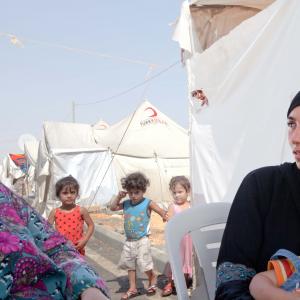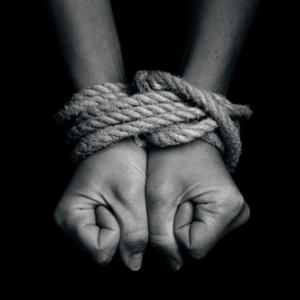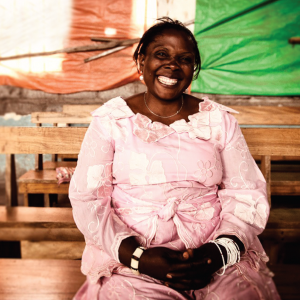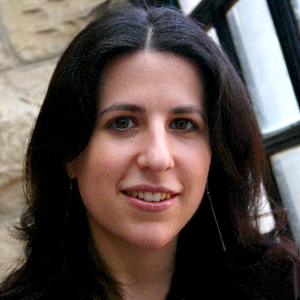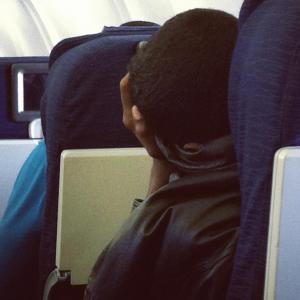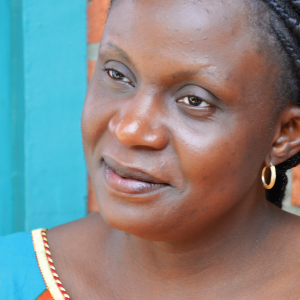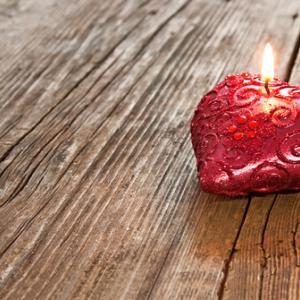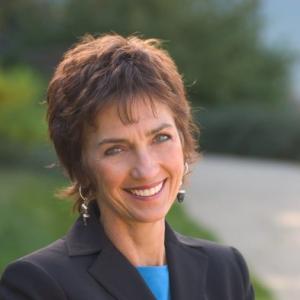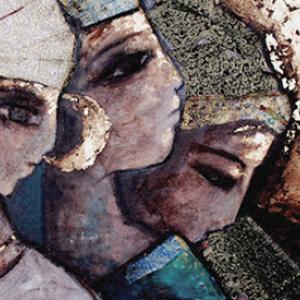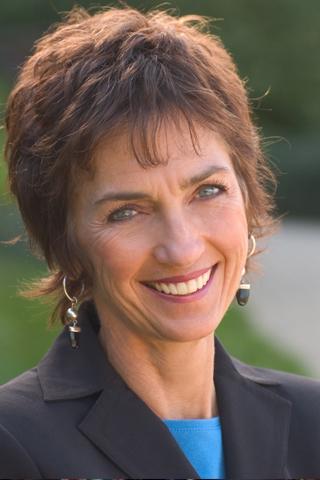
Lynne Hybels, co-founder of Willow Creek Community Church in Illinois, is author of Nice Girls Don’t Change the World and a columnist for Sojourners magazine.
Posts By This Author
Keeping the Faith in Trump's America
Six accounts of resistance and healing in the era of Trump.

Jmaggiophoto / Shutterstock.com
"In the wake of this election, the role of faith communities is imperative," writes Jim Wallis in "Resistance and Healing." With this in mind, we asked a few Christian leaders how followers of Jesus can best practice resistance and healing in Trump's America. Though varied, the responses we received have a common theme: Christians must stand in solidarity with the vulnerable. Now and always. —The Editors
Resistance is Holy Work
by Brittany Packnett
RESISTANCE IS HOLY WORK. Resistance is what it means to tell the truth and defend people in public, even—and especially—when it is inconvenient, dangerous, and uncomfortable.
What truths must we tell? We must tell the truth that the entire world is not white, straight, Christian, cis-gendered, American-born, male, or able-bodied, and that those of us who aren’t matter just as much as those of us who are. We must tell the truth that rhetoric and policies that encourage violence against those same people is not of God and not of the freedom we espouse. We must tell the truth that if all of us were truly created equal, then the cancer of xenophobia makes all of us sick—and that none of us are truly free until we are all free.
We did not lose an election as much as we validated and normalized a way of life that is beneath our humanity—and, therefore, which requires our resistance. The Christ I serve did not sit idly by in times like these—for in eras like this one, inaction is a sin. Inaction perpetuates this latest wave of hate just as much as if you painted a swastika yourself. Hate should never be welcome in our homes, at our tables, in our worship, or in our country.
It is holy to resist such things. Holy resistance means calling out that hate by name and casting it out of where you are—of where you want God to be. Casting it out means no longer making excuses that your grandfather just talks like that because he is elderly; it means withholding your tithes and membership from those places that will not be safe havens and sanctuaries for those persecuted under potential new rules of law; it means challenging the notion that we stitch together a false unity rather than acknowledge the explicit danger many of us are now placed in.
Holy resistance means praying for those who persecute—but protecting the persecuted. Christians must be people of moral conscience, those who conscientiously object to hatred, division, racism, and sexism as unashamedly as we claim Christ. The call to be in the world and not of it was for such a time as this—we must be the light that shines on injustice and calls out our humanity to replace the evil we see.
Resistance is holy work. That makes it our work.
Smiles from the Inside
The Za'atari refugee camp is the fourth largest city in Jordan.
I'M DREAMING. Ten young men about my son’s age are singing me a Mother’s Day greeting to the tune of “Happy Birthday.” I recognize the melody, of course, but the language is foreign. Still, I’m delighted; I clap and laugh.
Oh, wait. It’s Mother’s Day 2014 and I’m not dreaming. In a refugee camp in Jordan, 10 young Syrian men are singing beautiful Arabic words to me and two other visiting American moms. It’s our last stop in an intense week of refugee visits; it feels good to be laughing.
The singing men, and the young Syrian women who joined us as we toured an educational compound in the Za’atari U.N. refugee camp, were bright university students in Syria before the war—future historians, mathematicians, teachers, agricultural engineers; some just months from graduating—when the violence of Syria’s civil war forced them to flee.
“But when you end up in a refugee camp,” one of the young men explained, “people treat you like idiots. Like you understand nothing.” Herein lies one of the great refugee tragedies. Living at the mercy of others and with little respect, no decision-making freedom, and no control over their future often fuels anger and hopelessness in young refugees.
To the Women of Syria
I wish I could end the war ravaging your country.
I wish I could sit beside you on a cushion on the floor and have a cup of tea with you. I would like to snuggle your baby in my arms. I would like to hear your story. I know you have a sad story, and if I heard it, I would weep.
I know you are good and loving women. I’m sorry you have lost so much. I’m sorry you had to come to a country, a city, and a house that is not yours.
I can imagine you in your own country, strong women serving others. I can imagine you making beautiful food and sharing it with your family and friends. I can imagine you caring for your mothers and daughters, fathers and sons, sisters and brothers and friends. Just the way I do.
Because that’s what women do. We are compassionate. We give. We serve. We protect. We work hard to make the world better for the people we love.
Wherever I go in the world, I discover that we women are very much alike. We may have different clothes. Different languages. Different cultures. Maybe our skin is a different color. But in our hearts, we are the same.
That’s why we can look into each other’s eyes and feel connected. We can talk without using words. We can smile. We can hug. We can laugh.
And sometimes, we can feel each other’s pain. I have prayed that God would help me feel your pain. I wish I could remove your pain. I wish I could help you carry it.
Protecting the Innocent
These desperately poor children are sacrificed to the sex trade's insatiable hunger.
AN UNQUENCHABLE demand for sex, coupled with an endless supply of vulnerable children, creates a seemingly endless cycle of child exploitation.
During the Vietnam War, the U.S. Department of Defense contracted with the Thai government to provide “recreation and relaxation” for U.S. soldiers. Sex tourism was organized and expanded into a major industry. Today, sex tourism is a huge source of income for Thailand: The country remains a hub for tourists who can get anything they want at a very low price. Many children are trafficked into Thailand from surrounding countries or are fleeing military genocide. Others are pressured by their own family members to contribute to the household income. Uneducated and hopeless, these desperately poor boys and girls help feed the sex trade industry’s insatiable hunger for children.
A friend of mine recently traveled to Thailand. “I’d read books and watched documentaries about the sex industry in Thailand,” says Jennifer Laine VanBeek. “But nothing prepared me for Bangkok. Even beyond the red light districts, the sex trade is impossible to ignore. I was defeated by the sheer volume, the visible presence, the young ages of the exploited girls and boys, and how engrained it seemed to be in Thai culture.”
Jennifer visited Thailand—often called “Disneyland for Pedophiles”—with her Westmont College friend Rachel Goble, president of The SOLD Project, an organization that works to prevent child exploitation. Early in 2008, Rachel moved to Thailand’s Chiang Rai region, whose lush landscape and laughing children belie the harsh reality: Generations of women from this village have been and continue to be exploited by Thailand’s sex trade.
And Now, the Rest of the Story
For years, Charlene's face haunted me and compelled me to action.
A FEW YEARS ago in this column, I told the story of Charlene, a woman I had just met in a camp for displaced people in the Democratic Republic of Congo. Charlene’s civilian husband had been murdered by rebel fighters in Congo’s brutal civil war. She and her eight children then fled for their lives, ultimately finding shelter in the hovel of mud and sticks where I met them (September-October 2010).
Like thousands of other displaced Congolese women, Charlene had been forced by destitution to hike into the forest for firewood to trade for food for her children. Like thousands of other displaced Congolese women, Charlene had been brutalized by fighters who hid in the forests and used rape as a weapon of war. Like thousands of other displaced Congolese women, Charlene had been impregnated by her rapist. Because of the stigma of rape in that culture, the beautiful two-week-old baby she’d named David was destined to a life of marginalization and despair.
Charlene was the first woman I met in Congo. She explained to me that even when the women went to the forest in groups, armed rebels would overpower and rape them. If husbands went into the forest to protect their wives, the rebels would kill the husbands, and then rape the wives. The women took the risk—and paid the price.
For me, Charlene gave human shape to Congo’s horrific story of colonial exploitation, tribal conflict, and foreign greed. In the four years after we met, hers was the first story I told whenever I spoke about Congo. It was her pain that motivated me to keep speaking, writing, and advocating for Congo.
A Dogged Pursuit of Middle East Peace
"The alternative—not having negotiations—is guaranteed to fail."
GEORGE MITCHELL, the former U.S. senator who famously brokered peace in Northern Ireland, knows the path to peace is unpredictable. “Until it happens,” he said, “you can’t predict with certainty. ... You can’t take ‘no’ for an answer. ... You just have to keep at it until peace is achieved.”
After five years of stalled Middle East peace talks, Secretary of State John Kerry lured Israeli and Palestinian negotiators back to the peace table in July. Sadly, my desk is littered with articles by naysayers who seem more than willing to “take ‘no’ for an answer” when it comes to peace in the Holy Land.
Naysayers point to the expansion of Jewish settlements and the political power of Israeli hawks, as well as the divisions in Palestinian society that convince them there is “no true partner for peace.” Certainly years of disappointments and failed negotiations offer ample cause for skepticism.
But I agree with Faisal Abbas, who suggests that cynicism is a lazy option we can’t afford. “Negotiations may succeed or fail to achieve peace,” he writes, “but the alternative (not having these negotiations) is guaranteed to fail.”
Stories Worth Telling
We need to hear more about the people committed to peace.
IN HER JEWISH school in Montreal, Ronit Avni learned the tragic history of her people. Her Canadian mother and Israeli father had met in the ’60s when her mother was living in Israel and working as a folk singer, often performing for Israeli troops. Her older sister was born in Tel Aviv, but the family settled back in Montreal in the mid-’70s before Ronit was born.
Not strictly religious but committed to the values of Judaism, Ronit couldn’t help but ask probing questions as she listened to the stories of the birth of the modern state of Israel in 1948. Am I hearing the whole story? How do Palestinian perspectives differ from what my educators and community leaders are teaching? How can we transform this situation from a zero-sum equation to one that respects the dignity and freedom of all?
Years later, having graduated with honors from Vassar College with a degree in political science after studying theater at a conservatory in Montreal, Ronit trained human rights advocates worldwide to produce videos as tools for public education and grassroots mobilizing.
By the time I met Ronit a few years ago, she had narrowed her worldwide focus to the Israeli-Palestinian conflict, where her heart was most deeply drawn. She is the founder and executive director of Just Vision, an organization dedicated to increasing media coverage and support for Palestinian and Israeli efforts to end the occupation and conflict without weapons of violence.
During the last several years, my engagement in the Holy Land has been significantly shaped by Ronit. Her film Encounter Point, about Israelis and Palestinians who have lost family members, land, or liberty to the conflict yet choose forgiveness and reconciliation rather than revenge, gave me hope that peace can emerge from pain.
The Man in Row 26
How small my world gets when I'm not paying attention
OUR PLANE SITS at the gate in Brussels well past our departure time. Slowly, the empty seats fill with Somali refugees whose flight a day earlier had been cancelled. After a night in the airport, they slide wearily into scattered seats.
Ten years together in a refugee camp in Uganda has melded the group into a close-knit family. What do they feel now, I wonder, knowing that on the other end of this flight they will scatter, not to empty seats but to unknown cities throughout the U.S.? From Syracuse to San Francisco, they will look upon a world they have never imagined. “When will I see my friend?” one little girl asks, not realizing she and her friend will live half a continent apart.
I watch a man a few rows ahead of me. I learn from his friend that he suffers from headaches. I know enough about refugees to realize headaches will likely be the least of his challenges. He and his family will face a confusing culture, strange language, unfamiliar religious practices, unknown yet required skills, and new technology—from flush toilets to garage door openers, from light switches to iPads. Then they’ll have to sort out schools and jobs and health care. They’ll be starting over, basically, with nothing.
Almost nothing. One suitcase per person contains the bit of their past they carry into their future. These slim and elegant humans are traveling very light. Unless, of course, you count the weighty baggage of war and displacement.
The Cost of 'Perverted' Preaching
We're seeing a slow but sustainable transformation of cultural attitudes toward gender and sex.
THE DEATH OF a college student who had been gang-raped in Delhi provoked outrage and anger. More than 2 million Indian students joined a movement to protest the rising violence against women in India. According to official data, reported cases of rape have more than doubled in the past 20 years, and women are the victims of a high proportion of other violent crimes.
But there's another side to this story. "Almost as shocking as the Delhi gang rape has been the range of voices that have sounded after it," wrote Sagarika Ghose, a TV journalist and commentator. "Patriarchy is chillingly omnipresent." Rather than blaming those who attack women, leaders in some Indian villages blame Westernization, liberal consumerism, growing individualism, or even the women themselves—because they wear "skimpy clothes," talk on mobile phones, and work outside the home, according to South Africa's Mail & Guardian newspaper.
For 19-year-old Kanika Sharma, these leaders miss the point. "It is all about the mentality of the boys," Sharma told the Mail & Guardian. "They think because they are men, they can do anything. But girls should get equal rights and opportunities."
Sharma speaks while standing under a sign that says: Being a woman should not make you feel vulnerable. But sadly, throughout the world women do feel vulnerable.
Before I traveled to the Democratic Republic of Congo (DRC)—described as the "rape capital" of the world—I studied reports on rape as a weapon of war. In the DRC rebel soldiers have brutally raped thousands of women. They know that if they rape enough women and girls, they can destroy the social fabric of an entire community.
Aren't We Supposed to Be Peacemakers?
Wherever I go in the world, I want to be quick to listen to differing perspectives and slow to pick sides.
DURING THE BALKAN war of the early ’90s, I traveled twice to Bosnia and Croatia. I visited middle-class women whose husbands and sons had been brutally killed. I visited a refugee center filled with people who had lost everything and were at the mercy of any country that would take them in. I visited school children suffering from post-traumatic stress after seeing their parents killed by enemy shells that landed in their homes.
I walked through the rubble of Mostar, where the Friendship Bridge—a massive stone structure named in honor of the many ethnic groups that had crossed it for four centuries—had been bombed and destroyed. In city after city, I saw the destruction of architecture, art, museums—a violent erasure of the cultures that had thrived there.
It was the first time I had seen war up close, and I was shocked by what human beings do to each other.
While I traveled in the Balkans, another war was waged in Rwanda by Hutus against Tutsis—what we now refer to as the Rwandan genocide. Since 2009 I’ve traveled twice to the Democratic Republic of Congo, where the ethnic battles forged in Rwanda crossed borders and continue to this day. As usual in war, civilians pay the highest price. Subsistence farmers in small villages want only to live in peace, tend their crops, and feed their families. Instead, their crops are burned, wives and daughters are raped, and many become slave labor in Congolese mines that provide minerals for our cell phones and wealth for the violent criminals who control the mines.
Gathering Around the Peace Table
"We've been caught up in conflict and violence for so long." —Congolese pastor
SEVEN AMERICAN women sat at a long rectangular table with 10 pastors from rural communities in Eastern Congo to learn about the pastors’ work of healing and reconciliation. A brilliant World Relief translator moved seamlessly from Swahili to French to English as we jotted notes.
“When Marcel from World Relief first gathered local pastors together, we were suffering,” one pastor said. “But he reminded us that, even in circumstances like these, the church has a crucial role to play. All the victims in our communities are people given to us to care for.”
Local church pastors in the North Kivu region of Congo face personally all the sufferings common to members of their communities: murder of family members by armed militias; rape of mothers, wives, and daughters as a weapon of war; displacement from their homes because of local conflict; an economy based on subsistence farming destroyed when crops are burned or uprooted by marauding rebels.
But their personal suffering doesn’t invalidate their biblical call to “care for the least of these.” Marcel, formerly a local Congolese pastor, works with World Relief Congo to serve local pastors by providing training in leadership, community transformation, trauma healing, and conflict resolution.
The pastors’ first challenge was to create committees representing every denomination and tribe in the region. The committees meet monthly to determine who in the community is most in need—a family with nothing to eat, a widow without shelter, a victim of sexual assault who needs hospital care. Sometimes the most needy are church members; sometimes they aren’t. It doesn’t matter.
Fighting the Real Enemy: Fear
"That's just like my mom, to send me a message through a Jewish woman!"
Siham Abu Awwad grew up in a Palestinian family in a small West Bank village. When Siham was 14, her mother was imprisoned for six months for demonstrating against the military occupation of the West Bank. Siham became the woman of the house, caring for her four brothers—Khaled, Youssef, Ali, and Maha.
With their mother in jail, Siham and her brothers became very close. “We had a special place in each other’s heart,” she told me. Missing her mother, and with little time for friends, Siham became especially close to Youssef. “I told him everything. He was kind and sensitive. He was like a sister!”
When Siham’s mother returned from prison, she continued her political activism and was soon arrested again, but she maintained a sense of humor and challenged her children to be kind and good.
The establishment of a nearby Jewish settlement led to ongoing seizures of land from Siham’s village, and there were frequent protests. By the time Siham was 17, her mother and all her brothers had been in and out of jail for participating in the protests that are illegal under Israeli law. Knowing she would likely be imprisoned again and concerned for her daughter’s future, Siham’s mother encouraged her to marry. Siham did, and eventually gave birth to five children.
Youssef and Ali both married too, but happiness was short-lived. Two months after his wedding, Ali was shot in the leg by a settler. Doctors wanted to amputate his leg and feared he would not survive, but his mother arranged treatment in Saudi Arabia, where Ali’s life and his leg were saved. While preparing a celebration for Ali’s return, Youssef was shot and killed by an Israeli soldier at a checkpoint. “Youssef was our angel,” said Siham, “always with a smile.”
Stunned and Hopeful
Peace in the Holy Land is really possible.
The conflict between Israelis and Palestinians is often seen as a conflict between Jews and Muslims. But there are also minority communities of evangelical and other Christians who are caught up in the conflict. This includes Jewish followers of Jesus in Israel who call themselves Messianic Jews and Palestinian Christians in the West Bank. Sadly, the chasm between Messianic Jews and Palestinian Christians is deep. The end-times theology espoused by Messianic Jews can be interpreted in a way that supports the state of Israel at the expense of the Palestinians. At the same time, Palestinian Christians can become so focused on the hardship of living under oppressive military occupation that they forget the justifiable fear of violence that haunts Jewish residents as well.
International Christians, even those who try to honor the dignity of both Israelis and Palestinians, tend to be labeled as siding with one or the other—either with Jews as God’s chosen people or with Palestinians as victims of injustice. In recent years I have been judged by some as leaning too far toward the latter perspective.
In fact, I was severely criticized for speaking at the March 2012 “Christ at the Checkpoint” conference in Bethlehem. Because it was sponsored by Palestinian Christians, some people assumed it was anti-Israel. Prior to the conference, a writer for The Jerusalem Post called me a threat to the state of Israel; and some American Messianic Jews called me a heretic and an anti-Semite.
To be honest, as the conference approached I regretted having agreed to participate. Was it worth the controversy? And what if the conference inadvertently fueled hostility and division? Rarely have I gone into an event so fearful of outcomes and so earnest in praying for God’s intervention.
The Common Bond of Blood
"Do you invest it in revenge, or do you think creatively?”
Gratitude for the 'Better Men'
I'm grateful to the men who use their power, money, and influence on behalf of women.
Lynne Hybels answers, "What is an Evangelical?"
Increasingly, in meetings focused on a wide variety of human tragedies, I hear these words: "What are you doing here? I didn't think evangelicals cared about these things."
I understand those comments. I grew up in a form of Christianity in which "saving souls" was pretty much all that mattered. The God I discovered in that church was a harsh, demanding tyrant; I knew that if I wanted to earn God's love I would have to be very good, follow all the rules, and work very hard. As a devout adolescent I did that. As a young pastor's wife I did that.
Unfortunately, I worked a little too hard and eventually became utterly exhausted, seriously depressed, and physically sick. That plunged me into a total life crisis in which I felt compelled to give up the God of my childhood.
Fortunately, a wise friend said to me, "For a while, forget everything you've ever thought about Christianity; forget the Old Testament; forget Paul and the epistles-and just read Jesus."
So for months -- for years actually -- I just read Jesus. And slowly but surely, Jesus reshaped my understanding of what it meant to be a Christian.
'We Are All One'
Around the world, religious freedom is under threat -- but people of faith continue to reach across divides.
'Please Welcome Them'
There is a light in me now, and it is taking over the darkness.

